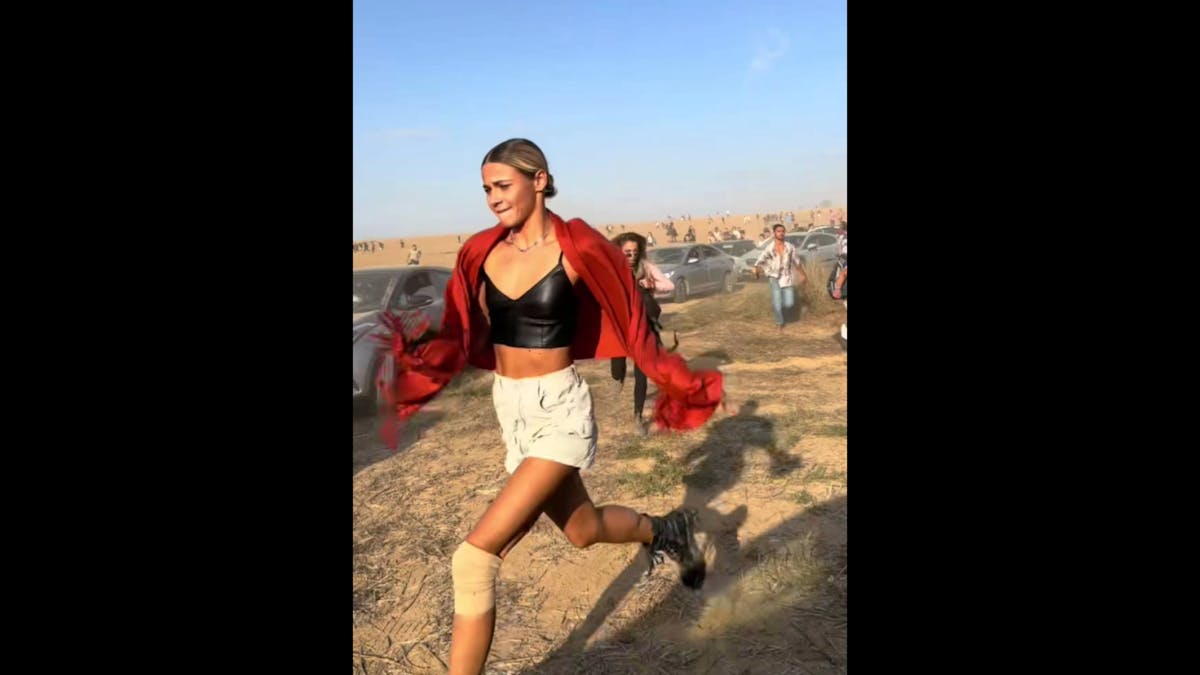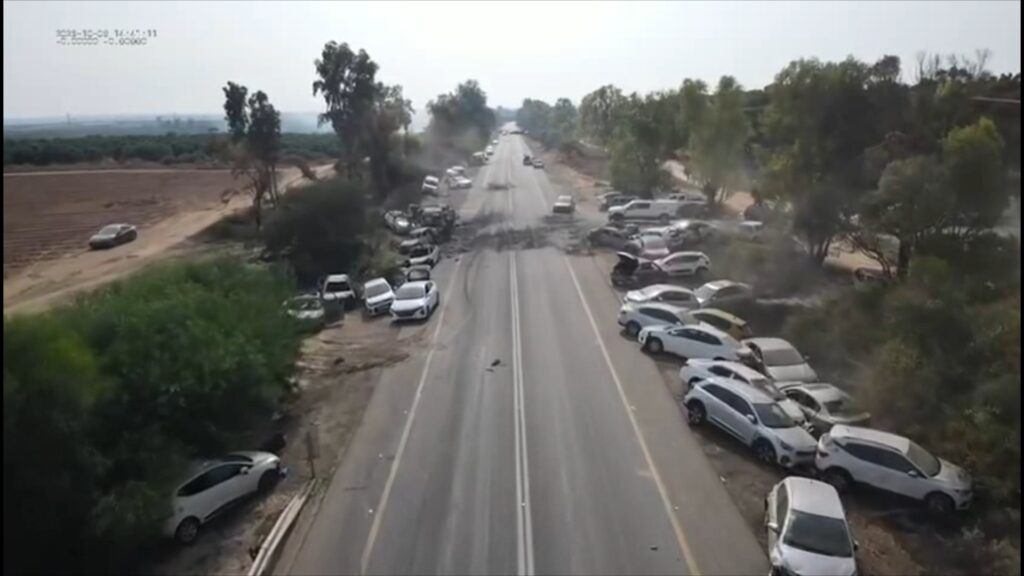Hamas, at the Music Festival Massacre of Israelis, Came for the Young and the Beautiful
A new documentary weaves together footage from victims and perpetrators alike to tell the story of the largest civilian massacre in the history of the Jewish state.

‘Supernova: The Music Festival Massacre’
Directed by Duki Dror and Yossi Bloch
Zygote Films, Steaming on Vimeo
The massacre at the Supernova music festival resembles something out of a twisted psychedelic trip — terrorist death squads murdering beautiful young people swaying to music, their bodies loose and their minds expanded. The handiwork of Hamas on October 7, it was the deadliest massacre of civilians and the largest terrorist attack in the history of the Jewish state. A party turned into a pogrom. There is no understanding the war at Gaza without it.
That is the harrowing tale “Supernova: The Music Festival Massacre” tells over its 52 minutes. From Zygote films, it is directed by Duki Dror and Yossi Bloch and co-created by Noam Pinchas. Adding to the tragedy is that Israel reckons that Hamas did not know about the festival before it breached the border. The blissed out beats of more than 3,500 young Jews was an invitation to injure hundreds, capture dozens, and murder more than 370.
“Supernova” is an exercise in the power of primary sources and a study in what a Gen Z atrocity looks and feels like. The film is stitched together from GoPro and cellphone footage, CCTVs, and dashboard cameras. The urge to document is typically the impulse of victims. Here, it was the pursuit of perpetrators too, astonished by the possibilities of desecration presented by transforming techno into terror with rifles and RPGs.
The movie opens with footage that appears drawn from another planet. DJs ply their trade, and strobe lights illuminate sand and skin. One festival goer calls it a “sacred space,” and the shakiness of handheld cameras conveys the liberating looseness sought out by these Israelis after the strictures of their military service. Many report going with friends and lovers, conveying the sense of a knitted community. In a small country, the ranks of those who would seek out this flavor of joy on Simchat Torah are intimate.
The stories have the same surreal horror as those relayed by Holocaust survivors, but those who lived here have no wrinkles — they are grandchildren, not grandparents. Take an event photographer, Noam Cohen. He is 19 years old and clenched his stomach, perforated by shrapnel, as he hid under a pyramid of dead bodies and ripped-apart limbs until the jubilant gunmen moved on. The killers were wont to toss grenades into crowded bomb shelters.
Or two students, Gali and Amit Amar. They found refuge in a portable toilet, where they hid silently for nine hours, knowing that the merest cry would invite a spray of bullets and worse. An aviation technician, Racheli Nechemas, took cover behind a tank filled with “flowers” — the bodies of dead soldiers. The rat-a-tat of gunshots and screams of allahu akbar announce the enemy. One girl recites the Shema, traditionally said before death, 52 times.

“Supernova” captures the astonishment of what it was like to feel the invasion that morning. One Israeli sees the rockets from Gaza streaking overhead and calls it a “bad trip.” Another thinks it is a special effect engineered by the festival. All know that they are on Gaza’s doorstep, but the meaning of that propinquity dawns only once it is too late to do anything but scream and run. Heartrending are the cries of the terrified: “Where is the army?”
One of the most unbearable interludes comes not during the scenes of hiding and slaughter and rape — terrorists are caught exulting over a Sabaya, or “war slave” — but the morning after. An Israeli police officer wanders the desolate field, searching for signs of life. There are none, just corpses stacked and sprawled. The screams, though, haven’t stopped. Footage surfaced on Friday of another festival goer, Noa Argamani, wailing as she is trundled to Gaza.
The scale of the gruesomeness is conveyed through texts and voice notes and video clips, by those not at the festival. Especially parents, who began to realize that their children were trapped on a killing field. Two of Ilan Regev’s children, Itay and Maya, were there that day. He recalls wanting to die if they were killed. Both were kidnapped, and eventually freed. Another mother, Hannie Ricardo, lost her daughter Oriya. The last text she sent was, “Mom, I love you so much.”
The attendees at the Midtown Manhattan screening attended by this correspondent looked nothing like those who danced by the desert dunes. It was an older crowd, speckled with kippot. I despair at whether the truth of what happened at Supernova would reach the frequenters of Burning Man camps, Bushwick raves, and Berlin basements. Whether empathy for young Israelis would be extended by those who cannot imagine their own EDM Edens going to shreds.

